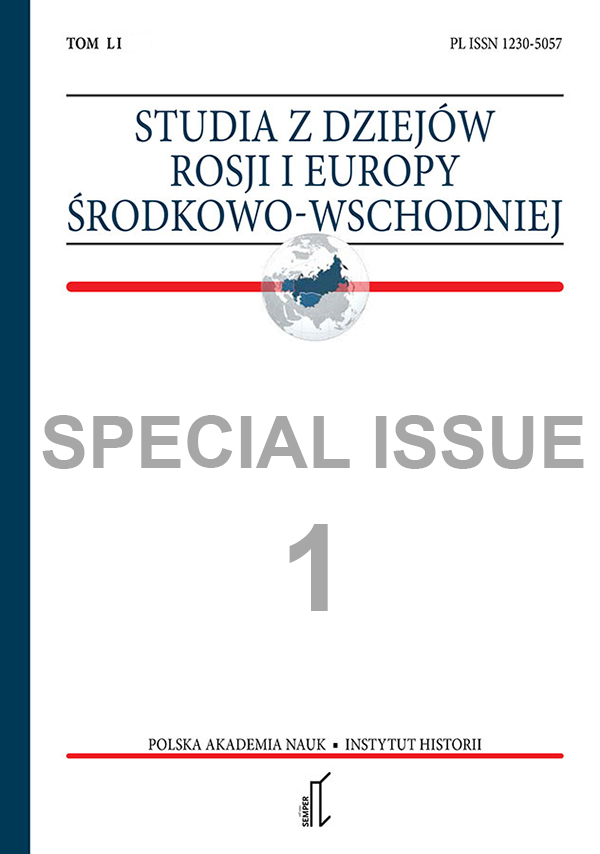Only Prometheanism? The policy of the Polish state towards selected circles of the Russian emigration in the years 1926–1935
Only Prometheanism? The policy of the Polish state towards selected circles of the Russian emigration in the years 1926–1935
Author(s): Łukasz DryblakSubject(s): Diplomatic history, History of ideas, Political history, Interwar Period (1920 - 1939)
Published by: Instytut Historii im. Tadeusza Manteuffla Polskiej Akademii Nauk
Keywords: Second Republic of Poland; Boris Savinkov; Pilsudski; Filosofov; Niezbrzycki; intelligence;Prometheism;
Summary/Abstract: The article spans the period of 1926–1935, but the presentation of the Polish state policy towards chosen Russian exiles is set in the context of the Polish-Russian co-operation from 1920 to the 1926 May Coup and concludes with an epilogue about Jerzy Niezbrzycki’s cooperation with the members of the Polish branch of the NTS (The National Alliance of Russian Solidarists) in the second half of the 1930s. The author explores the questions of attitudes of the Second Division of the General Staff of the Polish Army and the Ministry of Internal Affairs (occasionally engaged at the same time in Promethean work and contacts with leading members of Russian emigrants in Poland and abroad) towards the Russian emigration. Thus, the article is to answer the questions of the significance of this diaspora to the Polish authorities and of the mechanisms of enlisting their support for the Polish state.The author has reached following conclusions: from the Polish perspective, Promethean activities did not automatically exclude the support for the Russian anti-communist movement, although in fact in the case of a majority of Prometheans it was limited to monitoring of activities of Russian organisations rather than cooperating with them. Contrary to opinions of some researchers, the cooperation with the Russians was not broken after the MOCR-Trust was revealed at the turn of the 1927, but was re-modelled. Often, the purpose of maintaining contacts with the Russians was to replace the activists inconvenient to the authorities with those who were loyal to them; such a policy brought about in the early 1930s the effect of consolidation of the Russian movement around the Polish state, and minimalised German and Soviet impact on it.The study is based on the analysis of the Russian press, memories, published documents and correspondence, as well as materials hold in the Central Archives of Modern Records in Warsaw, Archives of the Institute of National Remembrance and the online collection of the Józef Piłsudski Institute in New York and International Institute of Social History at Amsterdam.
Journal: Studia z Dziejów Rosji i Europy Środkowo-Wschodniej
- Issue Year: 51/2016
- Issue No: 1
- Page Range: 77-113
- Page Count: 36
- Language: English

